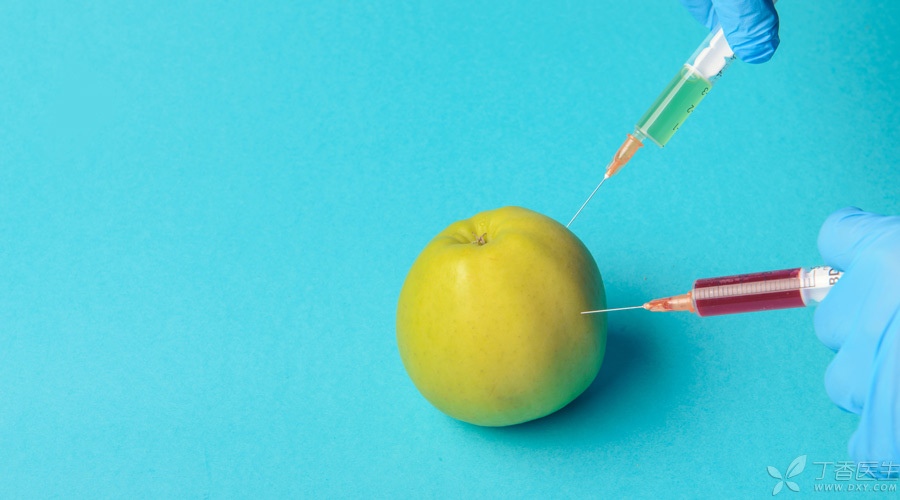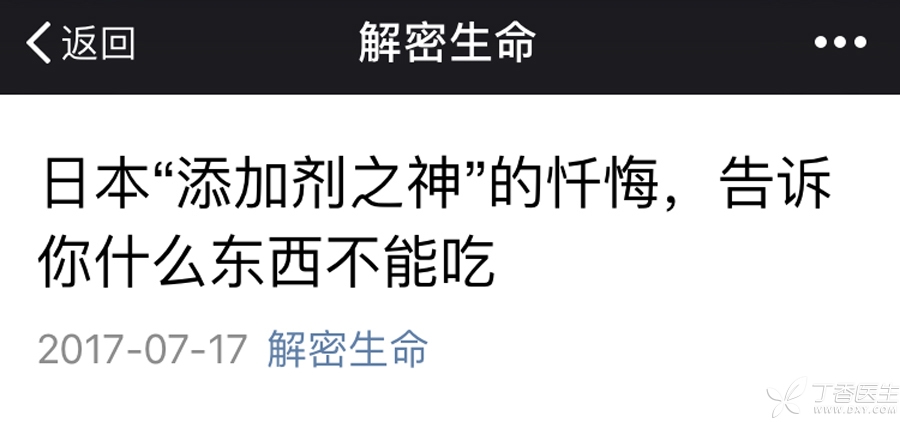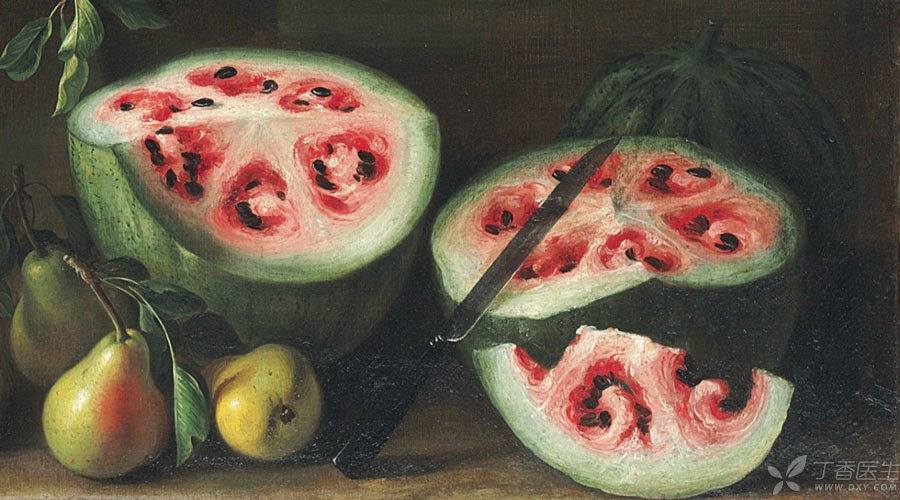
Recently, an article called “Confession of the God of Japanese Food Additives”! > > the article caught fire. Dr clove counted it. There may be more than a dozen versions, each with 10 w +.
The content of the article is simply [revealing the secret of the food industry, not being Chinese].

There is even a corresponding bestseller… … …

For these WeChat articles and books, because of their great influence, Dr. Clove felt it necessary to hit their faces…….
Face-beating 1: what called him the God of Food Additives?
This is what Abe, known as the God of Food Additives, said in the original text:
He has been engaged in food additive work for more than 20 years and is called “Living Dictionary of Additives” and “God of Food Additives”.
When we call a person [God of XXX], we usually mean that the person has a comprehensive and in-depth understanding of a certain field and has far more contributions than others.
Even Yuan Longping is only the [father] of hybrid rice……
Look at Abe. He is only a senior food developer who has been dealing with food additives for 20 years. Can he be called God?
Is Lao Wang, who has been selling steamed buns downstairs for 20 years, the “God of Steamed Buns”?
These days, it is too easy to seal the gods.
Face 2: Illegal Production, Blame Food Additives?
In the article, Abe described how he used food additives to make inferior or even spoiled food [delicious] [attractive] so as to be able to sell it at a high price.
He even revealed a lot about the food industry [shady]…

This kind of content is implying that fake and inferior food is the fault of food additives!
Is there any reason to break the law?
Food additives are intended to provide specific and beneficial effects, not to beautify inferior food! It is illegal to cover up the inferior quality of food with additives.
Just like marinating dead pigs into bacon with salt, it is the act of using bad pork, not salt, that is guilty.
If the content of this article is true, then this Abe Si should actually be called “the father of fake and inferior food”.
Face-beating 3: Is it not good if it is not traditional food?
No matter in the article or the book, Abe stressed: These foods are different from the traditional ones!
However, tradition ≠ health.
For example, the traditional high-salt pickles have definite scientific evidence to prove that they are harmful to health. If you can make low-salt pickles, of course, it is very good.
However, Abe’s view in the book is:
Low-salt pickles use [additives], so they are not good. Although traditional pickles are salty, you won’t eat much and there will be no harm to your body. Although low-salt pickles have less salt, eating too much is equally harmful.
This logic is too exotic, just like saying: traditional fruit candy is less sweet and it is not easy to get fat if you eat too much; The newly cultivated improved varieties have high sweetness and sugar content, and are easy to gain weight after eating… so we should not cultivate new varieties!

Which is better than arguing about traditional food or improved food? What consumers really need to know is: pickles and fruits, the advantages and disadvantages are what? How much is appropriate?
Face-beating 4: Talking about Toxicity from Dose?
Abe also said in the article that [approved food additives are safe].
However, when talking about a certain additive, he added: If this ingredient is ingested too much, it will be harmful to the body in what and what.
Then you can make it clear: what’s name is Duo? How much do you eat? Will there be more regular food? …….
In fact, the judgment that “if you eat too much, you will XX” is completely correct nonsense.
The same statement can also be applied to the vast majority of [natural] [traditional] foods: eating too much rice will make you fat, eating too much butter will cause hyperlipidemia and coronary heart disease; If you eat too much pork and beef, you will get cancer…
Face-beating 5: Pure Plant Diet Makes Heart More at ease?
There is no denying the fact that this book does reveal how some unscrupulous merchants in the food industry deceive the public. These illegal acts are also opposed by standardized and formal food enterprises.
What is needed to purify the food industry is strict supervision, not blind rejection of all modern foods.
At the end of the explosive WeChat article, the central idea was summarized and sublimated, and such a conclusion was drawn:

This final conclusion is too misleading:
- [Pure Plants] and [No Pesticides, Chemical Fertilizers, Chemical Additives, Anti-corrosion Treatment or Pollution] are completely different things. [Organic] has more restrictions in planting and processing. It may be more environmentally friendly, but it does not necessarily make food safer. Even if it is [pure plant food], the safety of food additives can be greatly increased by reasonably preserving and keeping fresh.
In fact, the problem of food safety really needs to be severely dealt with, but the focus should be to severely punish those unscrupulous merchants who illegally produce fake and inferior food, instead of blaming food additives.
